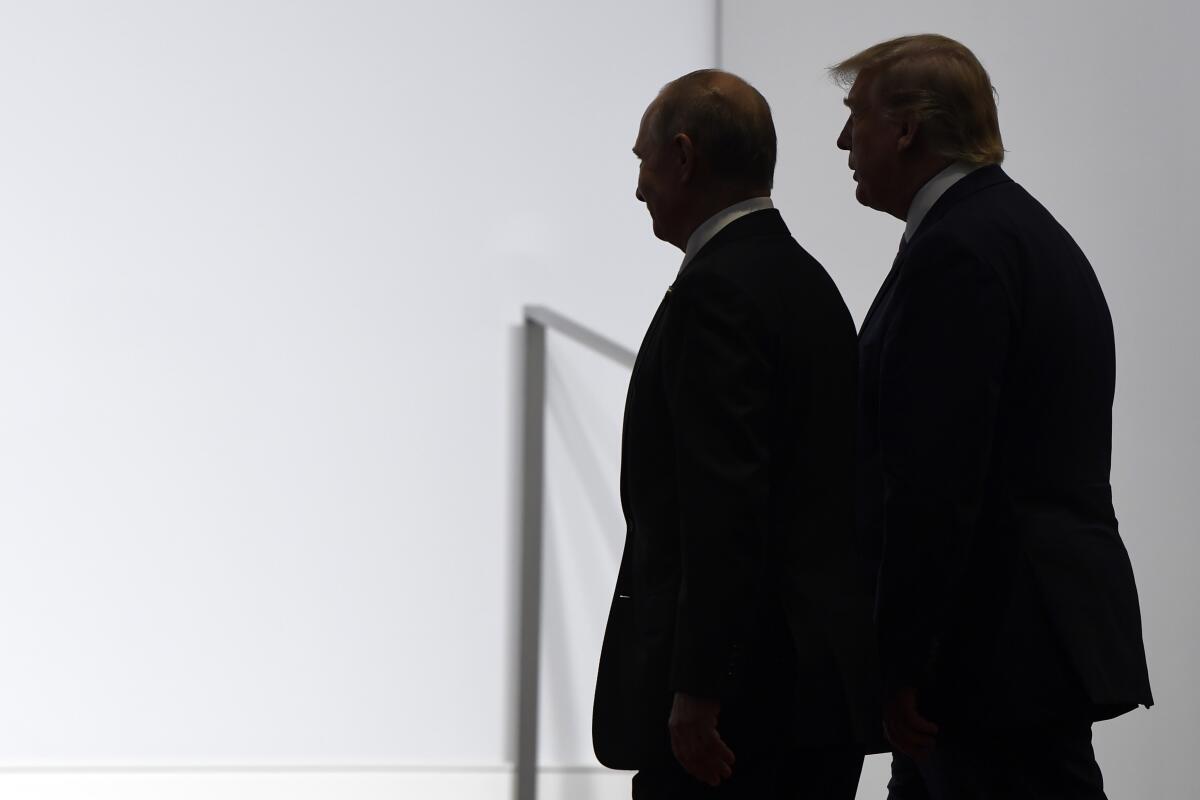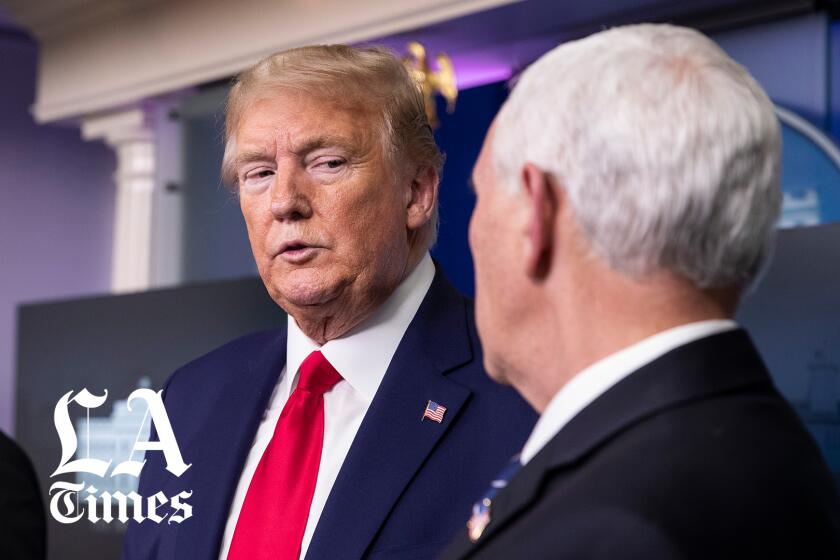Bipartisan Senate report backs assessment that Russia interfered in 2016 election

WASHINGTON — A bipartisan Senate report released Tuesday affirms the U.S. intelligence community’s conclusions that Russia interfered in the 2016 presidential election in a far-ranging influence campaign approved by Russian President Vladimir Putin and aimed at helping Donald Trump win the White House.
The report rejects Trump’s claims that the intelligence community was biased against him when it concluded that Russia had interfered on his behalf in the election. It says instead that intelligence officials had specific information that Russia preferred Trump in the election, that it sought to denigrate Democratic opponent Hillary Clinton, and that Putin had “approved and directed aspects” of the Kremlin’s influence campaign.
Senators warned that the interference could happen again this presidential election year.
The heavily redacted report from the Senate Intelligence Committee is part of the panel’s more than three-year investigation into Russian interference. Intelligence agencies concluded in January 2017 that Russians had engaged in cyber-espionage and distributed messages through Russian-controlled propaganda outlets to undermine public faith in the democratic process, hurt Clinton and aid Trump, who ultimately became president.
Trump has repeatedly questioned the assessment, which was also endorsed by former special counsel Robert Mueller in his report last year. Mueller concluded that Russian interference was “sweeping and systematic,” but he did not find a criminal conspiracy between Russia and the Trump campaign.
Senate Intelligence Committee Chairman Richard Burr (R-N.C.) said in a statement that his panel “found no reason to dispute” the intelligence community’s conclusions, saying they reflected strong tradecraft and analytical reasoning. He said the agencies’ conclusion that such election interference was “the new normal” had been borne out in the three years since it was published.
With his poll numbers dropping, President Trump says he’ll restrict legal immigration to battle the economic fallout of coronavirus, but the connection remains unclear.
“With the 2020 presidential election approaching,” Burr said, “it’s more important than ever that we remain vigilant against the threat of interference from hostile foreign actors.”
The Senate report calls the agencies’ assessment an “impressive accomplishment” and endorses its core conclusions that Russia interfered on a grand scale in the election and that Putin directed the interference.
“The Committee found that specific intelligence as well as open source assessments support the assessment that President Putin approved and directed aspects of this influence campaign,” the Senate report states.
The panel said it found that the intelligence community had presented sufficient information to support its conclusion that Russia had developed a preference for Trump over Clinton in the election. The report said intelligence officials “consistently” told the committee in interviews that they were under no political pressure to reach their conclusions.
The Senate investigation also delved into an internal debate at the time about how and whether to incorporate into the intelligence community assessment details from a dossier of research from a former British spy, Christopher Steele, that the FBI relied on as it sought warrants to eavesdrop on a former Trump campaign aide.
Officials eventually decided to include the information as a two-page annex to the most classified part of the assessment. The Senate said the information from Steele was not used in the body of the assessment or to “support any of its analytic judgments.”
The dossier has come under additional scrutiny within the last week, as newly declassified footnotes from a Justice Department inspector general report raise the prospect that Russian disinformation could have made its way into the research files. FBI officials told the Senate committee in interviews that they “would have had a major problem if Annex A had not been included,” according to the report.
Former FBI Director James Comey said in response to questioning from Burr: “I insisted that we bring it to the party, and I was agnostic as to whether it was footnoted in the document itself, put as an annex.”
He said he had a recollection of telling former CIA Director John Brennan that he considered the information from Steele to be “relevant” and that it “ought to be part of the consideration.”
Although largely praising the assessment, the Senate report does say it could have done a better job of looking at previous election interference. It says the agencies presented a clear argument that such meddling was unprecedented but did not adequately analyze interference in the 2008 and 2012 presidential elections, as it says President Obama had asked them to do.
The committee’s top Democrat, Virginia Sen. Mark Warner, said in a statement that the agencies’ assessment represented “the kind of unbiased and professional work we expect and require from the intelligence community.” Warner warned that the country should not be caught unprepared again.
Another Democrat on the panel, Oregon Sen. Ron Wyden, added his own, more blunt, comments in a statement at the end of the report. He said the committee’s work made clear that the intelligence community’s findings on Russian interference were “not a ‘hoax’” just because Putin denied interfering.
“Russian interference in the 2016 election is a fact, and Donald Trump’s deference to Putin only serves to further Russian disinformation and undermine efforts to defend the United States against ongoing attacks,” Wyden wrote.
The final report comes almost two years after the panel first released its findings agreeing with the intelligence community’s 2017 conclusions. Its release was delayed as intelligence agencies reviewed it for declassification, and much of it remains redacted. To write the report, the committee reviewed thousands of pages of documents and conducted interviews with intelligence officials.
This is the fourth of five reports the Senate panel will release on the meddling. Previous investigations reviewed Russian efforts to breach state election systems and manipulate social media, and made recommendations to prevent more interference in the future. Another examined the mistakes of the Obama administration as Russia interfered.
The committee’s fifth, and final, report will examine counterintelligence findings, including whether Trump’s campaign conspired with Russia. It’s unclear when that will be released.
More to Read
Get the L.A. Times Politics newsletter
Deeply reported insights into legislation, politics and policy from Sacramento, Washington and beyond. In your inbox three times per week.
You may occasionally receive promotional content from the Los Angeles Times.











